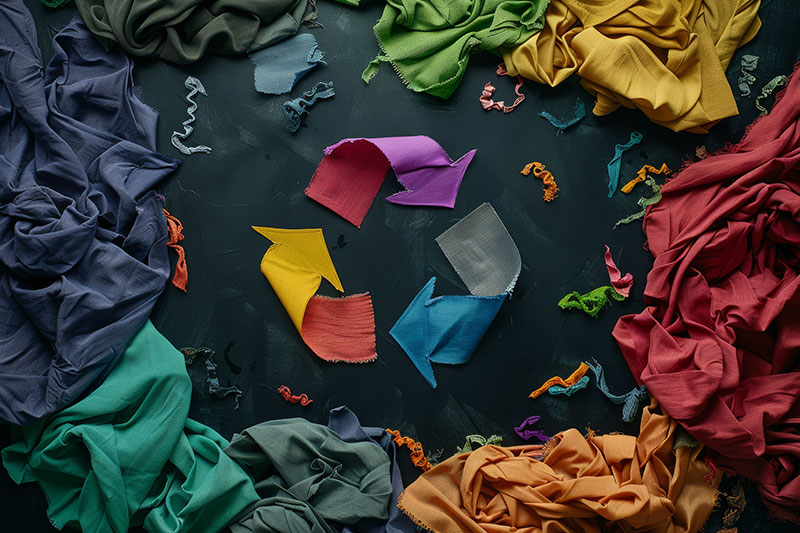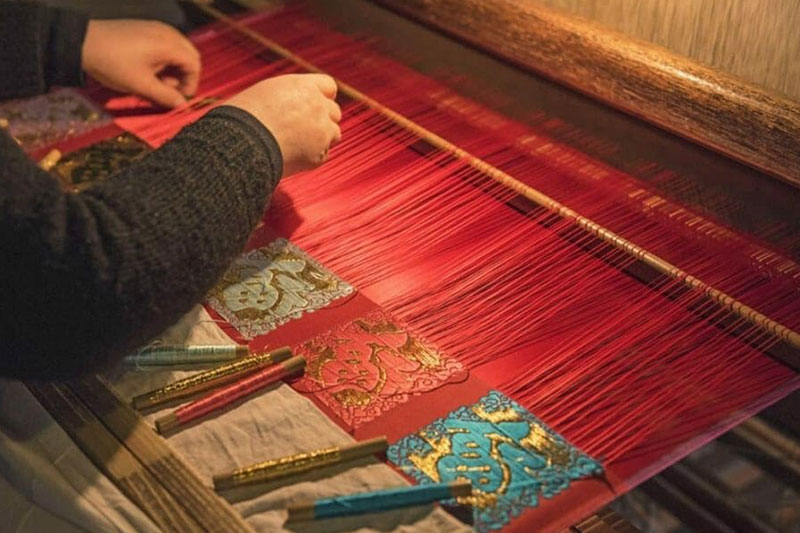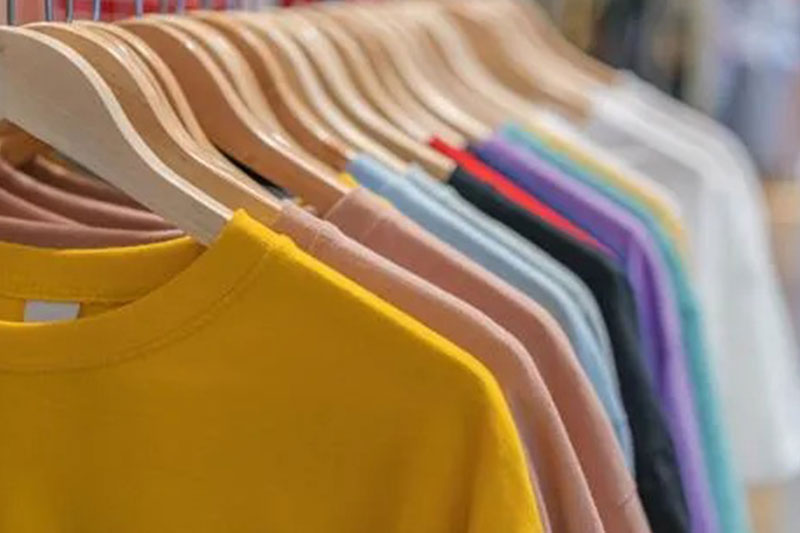India: Vying to Become a Leading Global Recycling Hub in the Garment and Textile Industry

India’s garment and textile industry has long been recognized as a global powerhouse, known for its craftsmanship and large-scale production capacity. Now, as sustainability takes center stage in global manufacturing, the country is aiming to become a leader in textile recycling, driving the shift towards a circular economy. With its vast resources and young, skilled workforce, India is uniquely positioned to not only meet its own needs but to emerge as a key player in the international recycling market.
A Young and Skilled Workforce Driving Recycling
At the heart of India’s textile recycling ambitions is its young, dynamic workforce. As one of the world’s largest producers of textiles, India’s labor pool is not only skilled in garment production but is rapidly gaining expertise in recycling technologies. This shift is creating a robust talent base capable of managing the entire lifecycle of textile products—from design and manufacturing to recycling and repurposing.
Key Advantages of India’s Workforce in Textile Recycling:
Vocational Training for Sustainability: India’s vocational training programs are increasingly incorporating courses on sustainable textile production and recycling. This ensures that the next generation of workers is well-equipped to handle modern recycling technologies.
Employment Growth in Recycling Sectors: As recycling grows, it creates new job opportunities, from skilled labor to high-tech roles in waste management, textile sorting, and fiber processing. This creates a sustainable economic model where both environmental and employment goals are met.
India’s Textile Recycling Ambitions
India’s textile recycling efforts are already gaining momentum, particularly in states like Gujarat, Maharashtra, and Tamil Nadu. These regions have become key hubs for textile recycling, where cutting-edge technologies are turning waste materials into valuable, reusable fabrics. Tamil Nadu, for instance, has emerged as a leader in textile recycling, with factories converting post-consumer textile waste into yarns that can be used in new fabric production.
Key Initiatives in Indian Textile Recycling:
Recycling Infrastructure in Key States: Large-scale recycling zones are being developed in India’s textile manufacturing hubs. These regions are focusing on technologies that break down waste textiles into raw materials, which can then be used to produce new garments and textiles.
Export Potential of Recycled Textiles: Indian recycled textiles are gaining recognition in global markets. India’s ability to process large quantities of textile waste at competitive costs allows it to export high-quality recycled yarns and fabrics to international brands focused on sustainable fashion.
Technological Innovations: Indian textile recycling firms are adopting advanced technologies, such as mechanical and chemical recycling, to transform discarded textiles into valuable raw materials. This helps reduce the dependency on virgin fibers and promotes resource efficiency.
The Global Fashion Industry’s Growing Demand for Recycled Textiles
The global fashion industry is under increasing pressure to adopt sustainable practices. Consumers and regulators alike are demanding more eco-friendly products, pushing brands to integrate recycled materials into their supply chains. India’s textile recycling industry is well-positioned to meet this growing demand, providing high-quality recycled fabrics that adhere to international standards.
Sustainable Fashion Partnerships: Many global fashion brands are now partnering with Indian textile recyclers to source sustainable materials. These partnerships are not only reducing the environmental impact of fashion production but also helping brands meet their sustainability goals.
Conclusion
India’s textile and garment industry is undergoing a transformative shift towards sustainability, with recycling at the core of this transition. By investing in cutting-edge recycling technologies, leveraging its young workforce, and capitalizing on its existing strength as a textile leader, India is poised to become a global hub for textile recycling.
As the world looks for sustainable solutions in fashion and textiles, India stands ready to lead the charge, offering recycled textiles that are both high in quality and environmentally responsible. The future of fashion is circular, and India is paving the way for a more sustainable and resource-efficient global garment industry.
In an era where fashion is undergoing a green revolution, India is not just participating—it is setting the pace.
Gartex Texprocess India
At Gartex Texprocess India, the future of the textile and garment industry takes center stage, showcasing India’s innovation in textile and garment manufacturing. This premier platform brings together industry leaders, manufacturers, and innovators under one roof to explore cutting-edge technologies that are shaping the future of textiles. As India aims to become a global hub for recycled textile materials, Gartex Texprocess India offers invaluable insights, networking opportunities, and access to the latest advancements. Join us from 22-23-24 May 2025 at Jio World Convention Centre, Bandra Kurla Complex, Mumbai, to witness how India is driving sustainability and positioning itself at the forefront of the global market transformation.
More News
How to Identify Authentic Indian Handloom Products?
Indian handloom products are a timeless testament to the country’s rich cultural heritage and craftsmanship. From luxurious Banarasi silks to timeless Khadi…View More
How to Start a Garment Manufacturing Business in India?
India’s textile and garment industry has always been a major contributor to the country’s economy, offering vast opportunities for entrepreneurs. With the…View More
How to Reduce Textile Waste in Garment Production?
Textile waste has become a growing concern in the garment industry, with significant environmental and economic impacts. As businesses and consumers become…View More
The Digital Transformation of Textile Production
The shift from traditional textile printing to digital fabric printing has unlocked a world of new possibilities for producers and designers alike.…View More
Recap of India’s Garment Industry in 2024: A Year of Growth and Transformation
As 2025 begins, India’s garment industry has experienced significant growth, overcoming challenges and embracing new opportunities in 2024. From technological advancements to…View More
Download
Register Now
Recent Posts
Show Countdown
DELHI
Bharat Mandapam (Pragati Maidan), New Delhi, India
- days
- Hours
- Minutes
- Seconds
MUMBAI
Jio World Convention Centre, Bandra Kurla Complex, Mumbai







